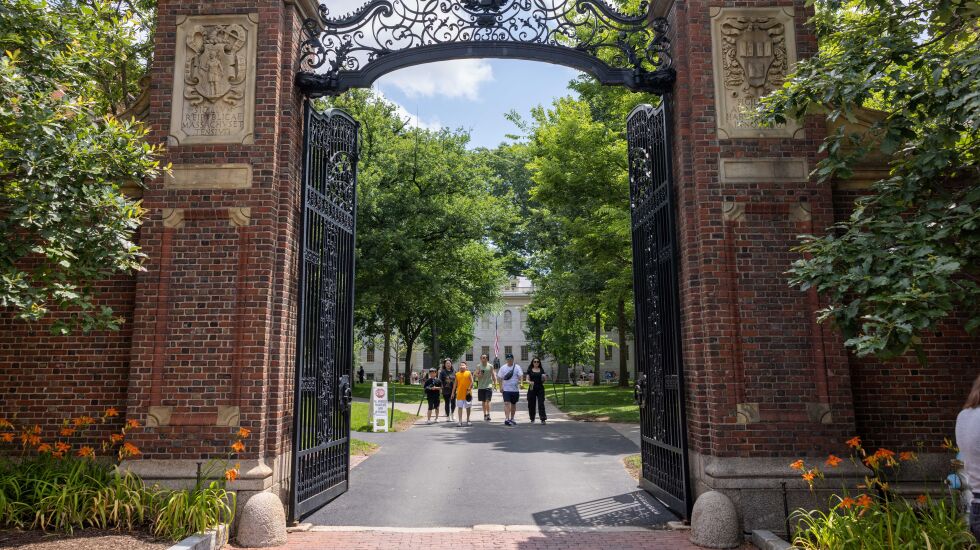
Ignorance means “lacking knowledge or comprehension of the subject being considered.” There are times we expect to hear ignorant comments, like when folks calling into talk radio go off on a rant. There are also times we don’t anticipate ignorance to rear its ugly head, like in the musings of Supreme Court justices, who are supposed to be erudite.
Yet in the recent decision that struck down affirmative action in college admissions, the opinions expressed by Supreme Court Justice Clarence Thomas and Chief Justice John G. Roberts demonstrated a stunning level of ignorance about the benefits of diversity in education, as well as the systemic racial bias which affirmative action helps remediate.
In the final decision, Roberts wrote that some affirmative action goals established by Harvard University and the University of North Carolina, like promoting a “robust exchange of ideas,” were too difficult to measure. Then, in a singularly hypocritical passage, Roberts ripped the programs for inappropriately stereotyping, by assuming minority students would all have the same views on an issue.
But nothing in the affirmative action programs before the court intimated that all minority students think in lock-step. That thought apparently belongs to Roberts alone. Instead, Harvard and UNC valued diversity in academia to ensure the varied perspectives of traditionally underrepresented minorities actually got heard.
It strains credulity to think Roberts really believes academic discourse is not made more robust by including the voices of minority students.
This is especially the case in highly selective universities, which enroll a significant number of white students, frequently from affluent families, who grew up in communities where they typically had little meaningful interaction with anyone who doesn’t look like them. Debating topics with colleagues of different races and socio-economic backgrounds exposes all students to very different world views and ways of analyzing/resolving problems. This in turn stimulates critical thinking, and promotes lateral thought processes, creative problem-solving and deeper learning for everyone — white and minority alike.
Roberts also opined that, “a benefit provided to some applicants but not to others necessarily advantages the former group at the expense of the latter.” Which is true in the abstract. But as a criticism of affirmative action, the critique demonstrates a fundamental ignorance of how various core public systems — like education, housing and tax policies — have created a web of structural racism that has systemically denied minorities generally, and Blacks specifically, access to educational opportunity.
Segregation starts with K-12 schools, housing
For a real-world example of how government-sponsored structural racism against Blacks manifests, look no further than Illinois.
Historically, Illinois has over-relied on local property taxes to fund K-12 education, effectively tying educational quality to local property wealth. Meanwhile, due in large part to decades of federally dictated housing discrimination, many Black families in Illinois are clustered in communities that are predominantly Black, and low- to middle-income with lower property values — hence less capacity to fund education. This has created a highly segregated public school system that for generations has put many Black children at a disadvantage compared to their white peers. Black kids simply have had less opportunity to develop the numeracy/literacy skills needed to do well on standardized tests and thus punch a ticket into an elite university.
The national data show this bias isn’t unique to Illinois. So it shouldn’t surprise anyone that as of 2021, 50% of all whites ages 25-64 had a college degree, compared to only 34% of Blacks. In this context, affirmative action in college admissions is far less about disadvantage to whites (the Asian plaintiffs in this Supreme Court case) and far more about redress for systemic discrimination.
Thomas, for his part, complained that the Harvard and UNC affirmative action programs placed some minority students “into more competitive institutions than they otherwise would have attended,” and would thus be less likely to succeed academically. Exposing all the ignorance in that claim would fill volumes, so let’s just focus on the highlights.
First, there’s nothing about a student’s racial identity that has any bearing on her or his ability to succeed academically. Period. Second, the economic and social value of an education and degree from a “less competitive” university is likely to be inferior to that of a more selective university — because selective universities are prestigious for a reason.
They have renowned faculty, high-end facilities, rich academic environments, the greatest access to high-quality internships, and nationwide networks of alumni. A degree from a “less competitive” school is simply not viewed by the outside world — read “employers” — as comparable to the same degree from an elite institution.
Justice Sonia Sotomayor got it right when she lamented that the court’s decision “subverts the constitutional guarantee of equal protection by further entrenching racial inequity in education.”
If universities can’t use affirmative action to level the educational playing field for minorities, the onus falls on state governments to do so — by eliminating all vestiges of structural racism in public education, from pre-K through higher ed.
Ralph Martire is executive director of the Center for Tax and Budget Accountability, a nonpartisan fiscal policy think tank, and the Arthur Rubloff Professor of Public Policy at Roosevelt University. Reach him at rmartire@ctbaonline.org
Send letters to letters@suntimes.com
The views and opinions expressed by contributors are their own and do not necessarily reflect those of the Chicago Sun-Times or any of its affiliates.







